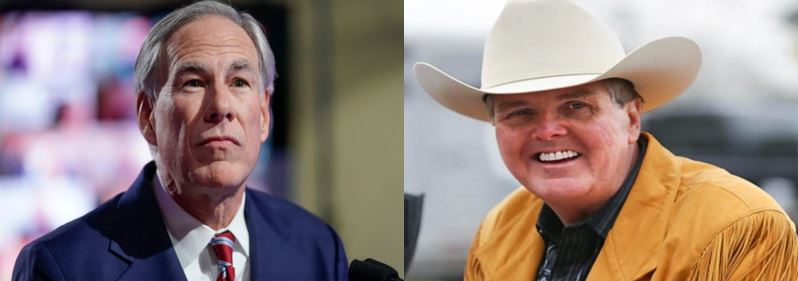Abbott v. Patrick on Property Tax Reform: Rate Cuts, Exemption Hikes, or Both?

Co-written by Anne Englert
Editor’s note: since this was published, the House and the Senate reached a compromise.
Gilbert Garcia recently criticized Governor Greg Abbott in the San Antonio Express-News for his lack of leadership in the current property tax cut debate in Austin. Whatever the governor may lack in that area, he makes up for by exposing the less-principled amongst his peers.
Take for example, Lieutenant Governor Dan Patrick.
The legislative chambers are at an impasse over how to reduce school districts’ take from homeowners. The governor and the house want to knock $.16 off the “maximum compressed tax rate,” while the LG and senate want to cut a dime and increase the homestead exemption to $100K.
The governor seems to be more in-touch with fed-up citizens.
When he says “Texans want to own their property, not rent it from the government,” he’s on solid ground. If you can be forcibly removed from your home for not paying the tax man, even when you’re free and clear of any loan, it’s really the state that has the keys to the front door.
That’s reason enough to abolish this albatross, which he says is the end-goal. “Fantasy,” retorts the LG. Yet, there’s more than one issue with his senate plan.
Though the Texas Tribune doubts “how renters would benefit from either proposal,” they would likely see less relief under the senate plan.
Speaking from experience (Baecker), many small-time landlords value stability. If they don’t share savings with their tenants, some other landlord will, and they’ll have to find another. Therefore, the bigger the absolute cut in property taxes, the more equitably broad-based the benefits.
Short of that, only commercial interests and the affluent will be able to afford the bill and/or have the time to protest it. And exemptions will barely help.
Upfront, the more earnings, savings, etc. that can be shielded from government seizure, the better. Exemptions do that. However, the benefits are fleeting thanks to the flimsy dollar.
No president or federal reserve this century has stood up for a strong dollar that brought so much prosperity in the 1980s and 1990s. When it subsequently weakens, the value of future investment returns becomes less certain.
Investors then turn to safer, established assets. Prominent amongst those is housing. There’s a reason almost half of all homes sold in the area in the last few years have been snapped up by them. The more capital that gets soaked up by these largely non-productive assets, the more real estate soars.
Less and less of this artificial value is shielded by a fixed exemption. Either no one in the senate knows this, or they’re happy to keep this political football alive to toss back and forth come election time. The lieutenant governor makes a case for the former when he rants about sales taxes.
To assume they would necessarily need to more than triple shows a lack of faith in the ability of Texans to create widespread wealth. What he and so many others regularly fail to realize is how tax revenues jump every time the right taxes are cut, the right way.
At the end of the day, the two plans are not that far apart. A compromise is completely within reach, as the governor now appears to see. If nothing else, this debate has been a useful exercise in laying bare who wants to do the right thing, and who just wants to fiddle around.
– Anne Englert is the owner of Texas True Tax.